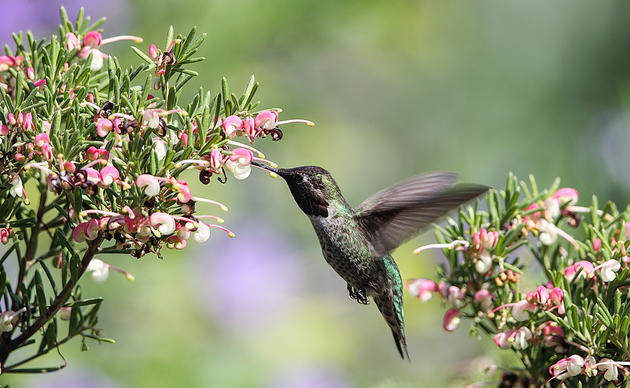Over the holiday weekend, a brush fire hit the Audubon Bobcat Ranch, located just outside of Winters. The blaze burned through 3,500 of the sanctuary’s 6,800 acres. No Audubon staff members were injured in the fire, nor were any structures damaged. Audubon California currently leases the property for grazing; none of the livestock on the property was harmed.
At this point, it is hard to assess the impact of the fire on birds and other wildlife. In many cases, fire can actually be good for a landscape, turning over dead plants and putting nutrients into the soil. In some cases, intense fire can force a change in habitat type, perhaps even helping invasive plants take over where natives once stood. Our staff will closely monitor the birds and habitat at Bobcat in the coming months to get a better read on the impacts from this fire.
Ranch manager Carissa Koopman Rivers first got word about the fire on the evening of July 4. By the next day, smoke from this fire could be seen from as far away as Sacramento, more than 40 miles to the east. Rivers complied with an evacuation order, and continued to work with firefighting personnel on logistics, while also updating her colleagues at Audubon California on the situation. At one point, firefighters used the Bobcat Ranch headquarters as a staging area. By the next day, the fire had moved off Audubon property.
The Monticello Fire, as it is being called, continues to burn in the area around the Audubon Bobcat Ranch. At the time of this posting, the fire is 55 percent contained. More information about the fire can be obtained from the CAL FIRE website.
(all photos by Carissa Koopman Rivers)
By Garrison Frost
Monthly Giving
Our monthly giving program offers the peace of mind that you’re doing your part every day.




